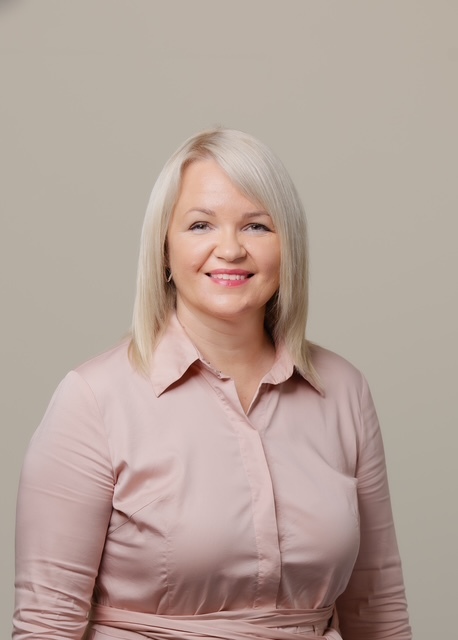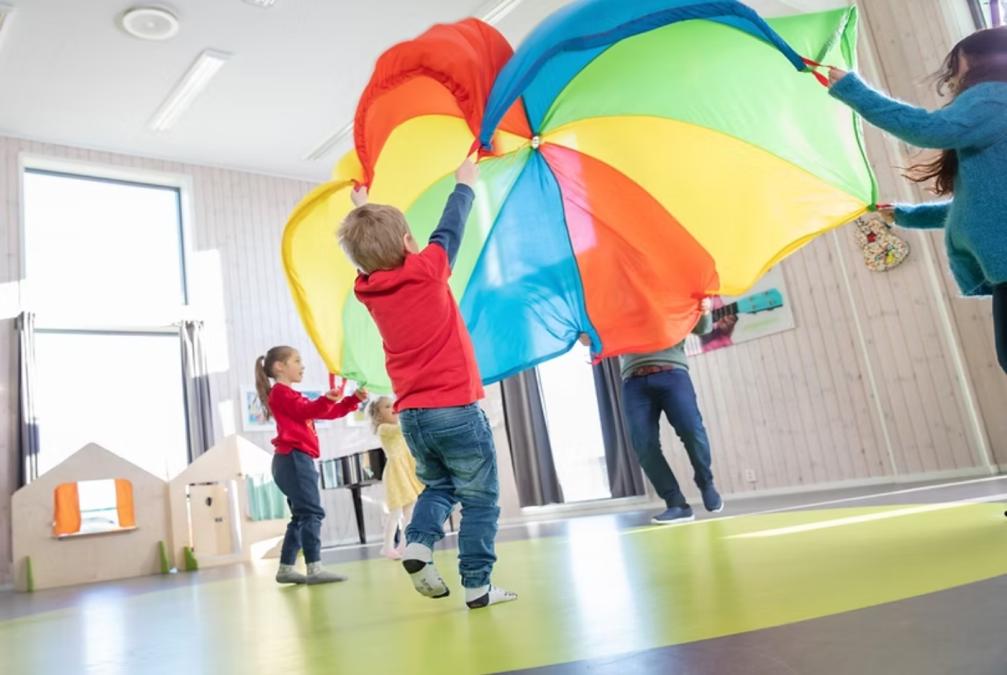The private preschool Creakids is a place where every day is an exciting adventure for children, filled with playful learning, new skills, and friendly collaboration. With eight branches, Creakids implements an educational program developed in Norway and adapted for Latvia. The program is based on the idea of respecting each child’s individuality, providing an environment where play becomes the foundation for learning. Within the framework of the curriculum, children develop not only knowledge but also social skills, emotional intelligence, and empathy. Creakids collaborates with educators from other countries (Dibber preschool education is implemented in 9 countries), developing innovative digital learning tools that enrich the learning process and make it modern. Since 2022, Creakids has integrated the ELIIS system—a preschool management platform that helps efficiently organize daily tasks, communicate with parents, and track children’s development. Creakids continues to successfully collaborate with ELIIS, ensuring a structured and transparent approach to the educational process. In this interview, we speak with Creakids’ Quality and Personnel Manager, Santa Lasmane.
What has been your professional journey to becoming the Quality and Personnel Manager at Creakids preschool?

Currently, at Creakids, I am the Quality and Personnel Manager, responsible for all branches, but I began my career as the manager of the Ģertrūdes Street branch. I have a pedagogical education, but I started my professional journey in the telecommunications industry. Over time, I realized that pedagogy and education are my true calling, and I began working in the field where I had earned my education.
What do you enjoy most about working in a preschool educational institution?
I am inspired by the dynamic daily routine, the fact that every day is different, and the awareness that education, including preschool education, shapes the future. Of course, the children’s smiles and the opportunity to care for them greatly motivate and inspire me to be a preschool manager and do this important work. I believe that preschools have a crucial task—to create a safe and harmonious childhood, as we are the first stage of a child’s education. For children, it’s their first experience, their initial steps in the learning process, and for parents, it’s the first opportunity to entrust their child to someone else. This is a great responsibility and, at the same time, immense satisfaction and motivation to do my job professionally and with the utmost responsibility.
What personal qualities do you think are most important for someone in your position?
Definitely empathy, the ability to be open, to see opportunities rather than problems, and to be solution-oriented.
Can you share the challenges you face daily as a manager and how you overcome them?
I believe that if we clearly know our goals and tasks, we view challenges differently. A challenge is usually a moment when we react emotionally to a situation, but if we can calmly delve into it and understand the desires and needs of each involved party, it often turns out that it’s not such a big challenge after all. When people genuinely listen to each other and understand each other’s needs, the situation can definitely be resolved—sometimes quickly, sometimes it takes a bit longer. It’s also important to listen and clarify expectations and whether the actual situation aligns with what was anticipated.
What advice would you give to someone who wants to become a preschool institution manager?
First, you need to understand internally whether this is truly what you want. And if the answer is yes, then you just have to do it.
How many teachers, teacher assistants, and children are in the institution you manage?
In total, our team consists of 243 employees.
.jpg)
Is there anything unique about your institution that you would like to share with ELIIS blog readers?
Creakids is part of the international preschool network “Dibber,” which unites approximately 600 preschools in 8 countries across 3 continents. The parent company operates in Norway, and Latvia was the first country outside Norway where the network’s preschools were opened. We are united by cultural diversity, allowing us to learn from one another and inspire each other. Recently, an international leadership summit was held in Latvia, where we could showcase our culture, demonstrate how Creakids operates in Latvia, and agree on future strategic plans. We received a lot of feedback about the beauty of Latvia’s nature and how Riga is a fantastic city with its diversity—we heard our colleagues’ enthusiasm and perspectives.
How has the role of a preschool teacher changed in recent years?
More and more people are coming to work in preschools who find genuine joy in this work and who have made a conscious and motivated choice. In our preschool, there are several colleagues who initially worked in completely different fields but always felt a calling to work with children and eventually pursued it. I am one such example.
What innovative teaching methods or tools have you introduced in your institution, and what results have been observed?
We are open to innovations but choose them carefully and critically. We respect people’s time, so we use the ELIIS system for communication with parents, a unified email system, MsTeams, and Microsoft Office 365 for communication with staff. At the same time, face-to-face communication remains important. As I mentioned, we are open to innovations, and four years ago, we created a digital learning resource platform that greatly supports preschool teachers’ work. Teachers can save time in preparation, and this year, our teachers also learned how to use artificial intelligence in their daily work.
What skills do you think are most important for preschool teachers today, and how do you, as a manager, help your staff develop them?
There must be motivation to do this work and the ability to see opportunities rather than challenges. It’s important to address issues as quickly as possible, not letting them escalate. Being open, resolving issues transparently and respectfully, and valuing others are key. A preschool teacher must take care of their professionalism and professional growth.

How do you support teachers who may be less confident in using digital tools or modern teaching methods?
As a manager, I need to keep up with what’s happening in society, understand changes, and respond to them. Recently, the topic of collaboration with parents and how to help children settle into preschool as smoothly as possible has become very relevant. A manager must provide support to both staff and parents.
How do you involve parents in their child’s early education, and which strategies have proven most effective?
The best motivation is when a teacher sees that these tools improve their work quality in their daily routine.
What are the most common problems you face in communication with parents, and how do you address them?
We pay great attention to the adaptation period and ensuring good collaboration between parents and the preschool from the first day until graduation. Creakids has a wonderful tradition—at graduation, there are not only children’s performances but also parents’ performances. This is a great opportunity to show that parents are also creative, talented, and ready to participate and create celebrations for their children. We would love for parents to trust us and be open from the start, but we also fully understand that both sides need to invest effort for this to happen. As a preschool, we must create a safe environment and assemble professional, motivated teachers so that parents can confidently entrust us with their most precious treasure—their children.
What systems or platforms do you use to manage preschool operations, and how have they improved your workflow?
ELIIS, MsTeams, Office 365, Happykids.lv—these platforms help save time, but it’s important to remember that daily communication remains crucial.
What do you think the future of early childhood education looks like, and is your preschool ready for it?
It’s our job, and of course, we actively think about the future of preschool education and early preschool. Currently, in Latvia, children can start preschool from the age of 1.6, but there are cases where parents choose to start earlier. I think we simply need to respect each parent’s and each family’s choice and look at examples from other countries. For instance, in Scandinavia, children start preschool much earlier, and in Latvia, this idea has both supporters and opponents. I believe the state and municipalities should create guidelines and opportunities, but the decisions should be made by families. The more choices families have, the more responsible their decisions will be. If there’s an opportunity to start preschool from the age of one, it doesn’t mean every family will do so immediately. However, the state and municipalities must ensure conditions where every family feels confident that preschool education is accessible. This can also help families make decisions about welcoming a child into their family.


